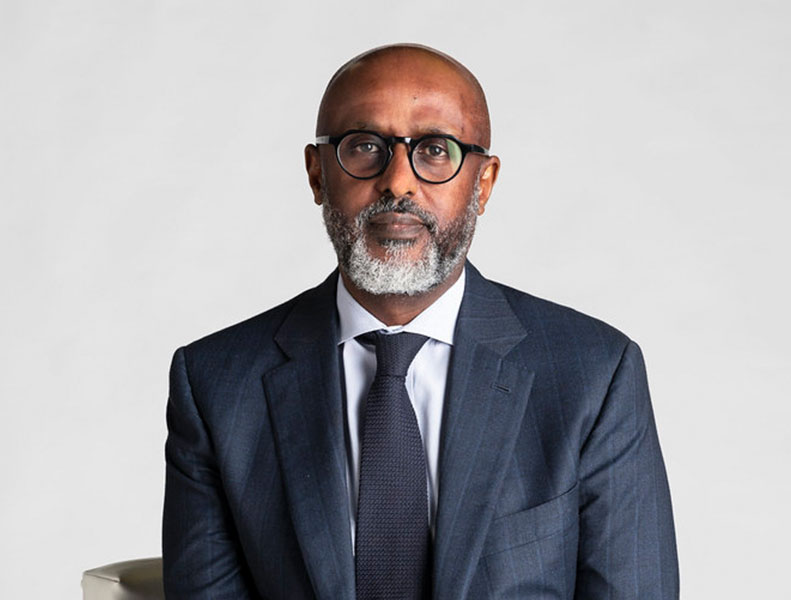
Fortune News | Oct 23,2021
Jan 29 , 2022
By Anne O. Krueger
Although the pandemic has caused upheavals and hardship around the world, it has fallen particularly hard on low- and middle-income countries. Vaccine availability has been far more limited in LMICs than in rich countries, and the refrigeration facilities needed to store the most effective vaccines are severely limited. In many LMICs, healthcare workers are scarce, the facilities for treating COVID-19 patients are inadequate and public-health systems are poorly organised, funded and administered.
Nor are the difficulties limited to health. In many LMICs, poor economic-policy choices have led to inflation, fiscal deficits, balance-of-payments difficulties, and heavy debt-servicing obligations. While some financing has been forthcoming from individual high-income countries, international financial institutions and NGOs, it has not been enough.
Moreover, many LMICs would be in severe economic difficulty even without the pandemic. Argentina has been negotiating with the International Monetary Fund (IMF) for months to obtain relief from pressing debt-service obligations and shortages of vital imports. In Turkey, President Recep Tayyip Erdogan has defied the consensus of almost all economists (not to mention common sense) by insisting that high interest rates cause inflation. As a result, interest rates are more than 16 percentage points below the recently reported inflation rate of 30pc, foreign-currency debt is high and rising, and the proportion of Turks in poverty is increasing sharply.
Among the many other countries running into economic trouble are Bolivia, Ghana, Madagascar, Pakistan, Sri Lanka and Zambia. In these cases, COVID-19 has been putting extra pressure on government finances, but it also seems to have provided an excuse for higher fiscal expenditures on other items.
In normal times, a crisis-afflicted country that cannot borrow from private lenders will approach the IMF. Government authorities and IMF officials will then consult and develop a plan for the country to address its problems by altering economic policies, restructuring unsustainable debts and borrowing funds to maintain the provision of basic supplies, such as imports of food, medicine, fuel, and essential intermediate goods.
Many who advocate financial support for LMICs assume that external financial relief will be directed to the desired expenditure categories, such as health care and assistance for the poor, in the case of a pandemic. But such assistance cannot provide sustained relief unless it is accompanied by reforms to the policies that led to excessive expenditures in the first place.
Sri Lanka is a case in point. The country’s economy was performing reasonably well under a reform program until 2019. But then a new government, actually, the “new” president is the younger brother of an ousted authoritarian ruler, came to power and threw caution to the wind, slashing taxes (and thus revenues) while also increasing expenditures. The country’s debt-to-GDP ratio quickly rose to 110pc and interest payments climbed to 70pc of total government revenue. A significant portion of the debt is owed to China.
And that was all before the pandemic. When COVID-19 struck, tourism revenues and workers’ remittances fell sharply, driving up inflation and the fiscal and current-account deficits even further. Incomes fell, pushing an estimated 500,000 Sri Lankans into poverty as of 2021.
Worse, the country is now experiencing shortages of essential items, including agricultural products, following a poor harvest this year. The harvest was weak because the government abruptly banned all imports of fertiliser and pesticides in May 2021 in a misguided effort to address the current-account deficit. This policy was not reversed until late November, by which point farmers were unable to buy sufficient supplies.
Nonetheless, the Sri Lankan government has steadfastly refused to approach the IMF and insists that there will be no debt restructuring. President Gotabaya Rajapaksa has asked China to postpone Sri Lanka’s scheduled debt service, but it is unclear whether the Chinese have agreed, or on what terms.
Even if the Chinese do provide financial support, Sri Lanka’s economy will be unable to resume normal functioning until its leaders have addressed the underlying macroeconomic problems and introduced measures to alleviate the burden of debt service. In Sri Lanka and other countries confronting similar crises, the situation demands a combination of appropriate economic-policy changes, a debt-restructuring arrangement, and lending sufficient to sustain essential imports.
When a government is determined to continue servicing its debt and refuses policy reform, advocates of continued financial aid should consider the implications. Maintaining support will merely enable payments to public and private creditors while doing little to alleviate hardship or mitigate the economic crisis. In Sri Lanka’s case, there will come a time when the country cannot continue to meet its debt-service obligations. The result will be immiseration of the population, falling output, and persistent inflation.
Yet even if the economic crisis becomes so disastrous that the Sri Lankan government finally approaches the IMF, negotiations over a suitable reform program will be complicated by the need to include the Chinese in any debt restructuring. In this and many other cases, the international community must recognise the futility of ongoing assistance in the absence of accompanying reforms.
PUBLISHED ON
Jan 29,2022 [ VOL
22 , NO
1135]


Fortune News | Oct 23,2021

Commentaries | Jan 07,2024

Commentaries | Oct 26,2024

Editorial | Jul 17,2022

Obituary | Dec 05,2020

Viewpoints | Oct 12,2024

Fortune News | Sept 18,2021

Viewpoints | Dec 09,2023

Radar | Jun 01,2024

Commentaries | Jan 07,2024

Photo Gallery | 173902 Views | May 06,2019

Photo Gallery | 164130 Views | Apr 26,2019

Photo Gallery | 154213 Views | Oct 06,2021

My Opinion | 136591 Views | Aug 14,2021
Editorial | Oct 11,2025

Dec 22 , 2024 . By TIZITA SHEWAFERAW
Charged with transforming colossal state-owned enterprises into modern and competitiv...

Aug 18 , 2024 . By AKSAH ITALO
Although predictable Yonas Zerihun's job in the ride-hailing service is not immune to...

Jul 28 , 2024 . By TIZITA SHEWAFERAW
Unhabitual, perhaps too many, Samuel Gebreyohannes, 38, used to occasionally enjoy a couple of beers at breakfast. However, he recently swit...

Jul 13 , 2024 . By AKSAH ITALO
Investors who rely on tractors, trucks, and field vehicles for commuting, transporting commodities, and f...

Oct 11 , 2025
Ladislas Farago, a roving Associated Press (AP) correspondent, arrived in Ethiopia in...

Oct 4 , 2025
Eyob Tekalegn (PhD) had been in the Governor's chair for only weeks when, on Septembe...

Sep 27 , 2025
Four years into an experiment with “shock therapy” in education, the national moo...

Sep 20 , 2025
Getachew Reda's return to the national stage was always going to stir attention. Once...

Oct 12 , 2025
Tomato prices in Addis Abeba have surged to unprecedented levels, with retail stands charging between 85 Br and 140 Br a kilo, nearly triple...

Oct 12 , 2025 . By BEZAWIT HULUAGER
A sweeping change in the vehicle licensing system has tilted the scales in favour of electric vehicle (EV...

Oct 12 , 2025 . By NAHOM AYELE
A simmering dispute between the legal profession and the federal government is nearing a breaking point,...

Oct 12 , 2025 . By NAHOM AYELE
A violent storm that ripped through the flower belt of Bishoftu (Debreziet), 45Km east of the capital, in...